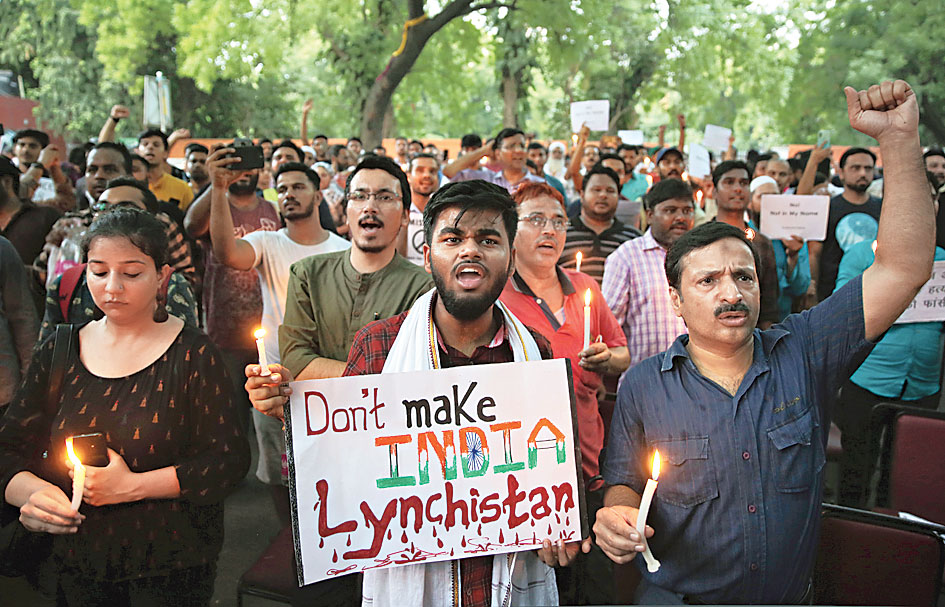Seventeen of the 44 people lynched in the country between May 2015 and December 2018 were killed in Jharkhand, according to data collated by an NGO.
The figure puts Jharkhand at the top of the heap of states where lynch mobs have struck, the small eastern state accounting for around 40 per cent of such casualties.
The grim piece of statistics resonates at a time Prime Minister Narendra Modi has expressed pain at the latest instance of lynching and pointed out that it was wrong to call Jharkhand an “adda (den)” of lynch mobs. “Is this fair? Why are they insulting a state? None of us have the right to insult the state of Jharkhand,” Modi told the Rajya Sabha on Wednesday.
While an entire state cannot be held responsible for the atrocities committed by some people, the BJP-run administration in Jharkhand has been accused of trying to battle the virus through bureaucratic means such as occasional “circulars”.
The state government is yet to implement several key elements of the Supreme Court’s guidelines issued in July last year to deal with lynching.
“The state government is responsible for law and order and it is not taking steps which need to be taken for putting an effective check on mob lynching incidents,” said Harsh Mander, a former bureaucrat who works with survivors of mass violence and the deprived.
Mander, who has filed a PIL in Jharkhand High Court for enforcing the apex court’s guidelines to combat lynching, said the state’s lynching toll of 17 was the highest in the country, according to data collated by the NGO, Human Rights Watch.
The figure does not include the three deaths that took place this year, including that of Tabrez Ansari, 24. Mander had approached the court four days after Tabrez had passed away.
While Jharkhand has implemented some of the guidelines, such as deputing a nodal officer and lodging FIRs promptly, activists complain that the state government had been dragging its feet on holding police officers accountable, setting up designated courts for daily hearings and providing compensation.
“In many lynching cases of Jharkhand, we have seen police negligence, especially while ensuring immediate medical attention for victim, which has resulted in deaths,” lawyer and rights activist Shadab Ansari said.
“I will say that the government does not seem to have the real intention of checking such incidents. In some of the cases, the complicity of police too is evident,” said Siraj Datta of Jan Adhikar Mahasabha, who was part of a community fact-finding team that visited Gumla, where a Christian tribal person was killed on April 10 this year over a dispute over meat of a dead animal.
Jharkhand chief secretary Devendra Kumar Tiwari disagreed that the state government had not done enough. “I held a video conference with all deputy commissioners and superintendents of police (SPs) in which they were categorically told that responsibility would be fixed in case any such incident took place in the areas falling under their jurisdiction,” he told The Telegraph.
In the Tabrez case, “11 people have been arrested and two officers-in-charge of the area have been put under suspension”, Tiwari said.
On Sunday, the state government publicised a circular in newspapers, threatening to seize the assets of those found involved in lynchings.
Not only will the accused persons in such cases be arrested, their properties will also be attached and the police will ensure their conviction in fast-track courts, the circular warned.
The government also appealed to residents to inform the police at the control room number 100 if they come across any such incident.
Chief secretary Tiwari said the government had decided that a DSP-rank official will be appointed as nodal officer. The phone number of the DSP will be widely circulated so that people can contact him directly if and when they come to know of such attacks.










